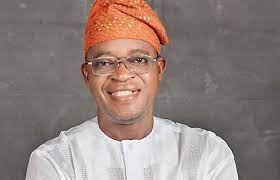Maureen Aguta
The Blue Economy Academy (BEA) has issued a compelling call to action following its inaugural “Code Blue – Nigeria’s Monthly Ocean Intelligence Brief,” held virtually on Tuesday, July 29, 2025.
The session, themed “Blueprint to Reality – Nigeria’s 10-Year Marine & Blue Economy Policy – Unpacking the Blueprint for Action,” convened key policymakers, industry leaders, academics, and civil society, stressing the critical need to translate policy into tangible progress for Nigeria’s vast maritime potential.
Speaking on the event, , Founder of the Blue Economy Academy and Convener of Code Blue, Mr Ubong Essien said, “Code Blue, in this context, signifies an urgent, purposeful call to awaken consciousness and ignite strategic focus on Nigeria’s ocean frontier – not a cause for panic, but a rallying point for stakeholders”.
He emphasised that despite Nigeria’s 853 km coastline, the nation suffers from “sea blindness” and has largely underutilized its maritime endowments. “The sea affects all of us,” Essien noted, highlighting that 80 per cent of imported goods, from clothes to food, are impacted by the Blue Economy.
The Communiqué from the event made available to Advocacy Times, underscores a “now-or-never” sentiment for Nigeria’s Blue Economy, with global interest in Africa’s blue resources rapidly growing.
Key Resolutions and Calls to Action from Code Blue 1.0:
- Policy Implementation with Clear Targets: The forum resolved that Nigeria’s 10-Year Marine and Blue Economy Policy must be immediately followed by a concrete action plan, detailing specific projects, responsible agencies, timelines, and measurable Key Performance Indicators (KPIs). Former NIMASA DG, Mr. Temisan Omatseye, critically remarked, “Once you have approved a policy like this, you must have a strategy…and on the back of that strategy, you have a KPI. Those should have been approved…not just the policy.”
- Enhanced Stakeholder Coordination: A strong call was made for government agencies and the private sector to collaborate as partners, rather than adversaries. Mr. Omatseye challenged, “Why should we rely on Angolan vessels to carry Nigerian cargo?” citing the current reliance on foreign ships for Nigerian exports like refined petroleum.
- Human Capital Development & Education: Participants stressed the urgency of integrating maritime education and ocean literacy from primary school, especially in coastal areas. Ms. Violet Williams, a key advocate, powerfully stated, “If a child in Port Harcourt doesn’t know the color of water, we have a problem.” The Communiqué urges improved support for seafarer training and certification to ensure global employability.
- Strategic Infrastructure Development: The Communiqué advocates for optimizing existing ports and investing in critical enablers like hydrographic surveys and inland waterway dredging, rather than indiscriminate port expansion. Mrs. Vivian Azubuike, DG of the Nigerian Chamber of Shipping, warned against projects that are “consuming money, more like what we call ‘greenwashing’ – they’re not doing anything for us.”
- Local Content & Shipbuilding Revival: A key resolution is to promote Nigerian content in shipping and shipbuilding, leveraging the Cabotage Vessel Financing Fund (CVFF) to enable local companies to acquire or even assemble vessels domestically.
- Inland Waterways Rejuvenation: The communique underscored the critical need to develop Nigeria’s neglected inland waterways for economic integration and national unity.
The forum highlighted that “semantics is too much. We need action,” urging a collective focus on measurable progress and accountability.


